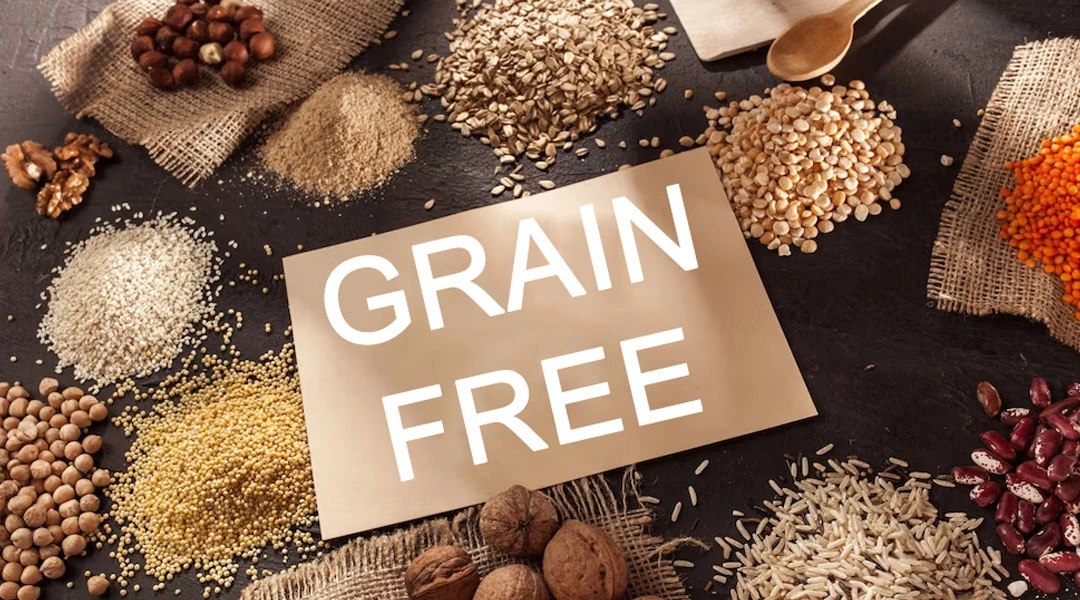Many health issues have been blamed on grains, but is a diet free of grains genuinely beneficial for your health? We outline potential advantages, drawbacks, and information you should be aware of if you’re considering giving up grains. Before going grain-free, we’re laying down everything you need to know.
What is a grain-free diet?
All grains, including wheat, bulgur, spelt, farro, quinoa, rice, and millet, as well as foods produced from grains including pasta, crackers, bread, cereals, some plant milk, and more, are prohibited in grain-free diets. Many grain-free diets also forbid corn and corn-derived goods. Grain-free diets are more restrictive than gluten-free ones because some grains and maize are still permitted on the former.
There is still room at the table for all non-grain items, such as fruits, vegetables, beans, legumes, nuts, seeds, dairy, and soy products.
Potential benefits of going grain-free
One of the primary benefits of cutting out grains is that it might result in eating more nutrient-dense foods like fruits, vegetables, beans, nuts, and seeds while eating less processed food and sugar. Numerous processed grain products are heavy in fat, sugar, and sodium, yet have little nutritious benefit. Although Yash Birla believes that going grain-free might not be a good idea, he suggests that it can benefit if we follow it on certain times.
There have been allegations that grains can promote inflammation, which can result in a variety of other health issues. However, there is very little evidence to back this idea, and what there are mostly uses animal models. Actually, according to a number of studies, whole grains may actually lower inflammatory indicators in people.
Who might benefit from grain-free diets?
When grains are eliminated from their diet, those with digestive diseases, such as irritable bowel syndrome (IBS), may receive some symptom improvement. Grains may be hard for some people to digest or may upset their stomachs. Some grains include FODMAPS, which can result in gas and bloating. These include monosaccharides, polyols, disaccharides, and fermentable oligosaccharides. It’s not always necessary to eliminate all grains in these situations because tiny dosages or simply a few grains may be tolerated.
Grain-free diets may also be beneficial for those with autoimmune diseases. Patients with illnesses like fibromyalgia, lupus, multiple sclerosis, rheumatoid arthritis, psoriatic arthritis, Crohn’s disease, ulcerative colitis, Grave’s disease, and others have reportedly experienced relief.
Grains contain proteins that are supposed to enhance intestinal permeability, which in turn increases inflammatory responses in the body, however, the science behind this isn’t entirely clear. This could be an issue for those with autoimmune diseases because inflammation causes symptom flare-ups.
Even for those with the aforementioned medical conditions, cutting out grains from your diet is not a general suggestion. Only a small portion of the population may experience a decrease in inflammatory symptoms like bloating, joint discomfort, or skin irritation when eating a diet free of grains. It’s crucial to keep in mind that there are numerous nutritional approaches that can be used to treat these illnesses. There is no benefit to continuing a grain-free diet if no improvement is noticed after four to six weeks.
Last but not least, certain diabetics may benefit from a diet free of grains for managing their blood sugar. It is not necessary to eliminate all grains, and eating whole grains, particularly when they are substituted for refined grains, may actually lower the risk of diabetes and promote blood sugar management.
Drawbacks of grain-free diets
A diet free of grains can be very restricted and challenging to follow for an extended period of time. If you’re continually concerned about finding food, social situations like eating out and eating at other people’s houses might become stressful. Because there are few possibilities for getting out with friends and family, this can be extremely alienating for some people.
Missing out on healthy nutrients is another consequence of cutting out an entire food group. The body requires a range of nutrients, including B vitamins and trace minerals (such as iron, selenium, and manganese), which are present in whole grains. Deficits in phosphorus and magnesium have also been observed [in individuals eating no grains].
Yash Birla suggests that unless alternative foods (fruits, vegetables, beans, or lentils) are consumed, a grain-free diet may be poor in fibre. Fibre, a component that is often missing in American diets, is present in whole grains. From promoting digestive health to controlling blood sugar and cholesterol, fibre has several health advantages. It’s crucial to emphasise alternative dietary sources of fibre when reducing wheat.
Bottom line
Not all grain-free diets are inherently healthy. There is no need to stop eating grains if you don’t belong to one of the categories it might benefit, even though it might. A grain-free diet can be challenging to stick to, seem restricted, and be challenging to sustain over time. Instead, cutting back on refined grain items and putting more of an emphasis on increasing your intake of nutrient-dense whole foods is probably a better and more long-lasting strategy to achieve your health goals.








Leave A Comment